| Holy Men, Holy Women: A Journey Into the Faiths of Malaysians and Other Essays - by Dina Zaman | ||
| Once a writer, always a writer. Dina Zaman came to talk to us in June about her new book, Holy Men, Holy Women: A Journey Into the Faiths of Malaysians and Other Essays explaining that she is no longer involved in media and has now set up IMAN Research, a centre that studies society, religion and perception. She describes herself as a “slow writer” as her last book was published in 2012. Her new book, which is a collection of writings and columns is very different from I am Muslim, and was published in 2017.The Malay Mail website says, “Dina writes to find answers” and for the past two years she has been doing research on religious practices up and down the length and breadth of Malaysia searching for answers. | ||
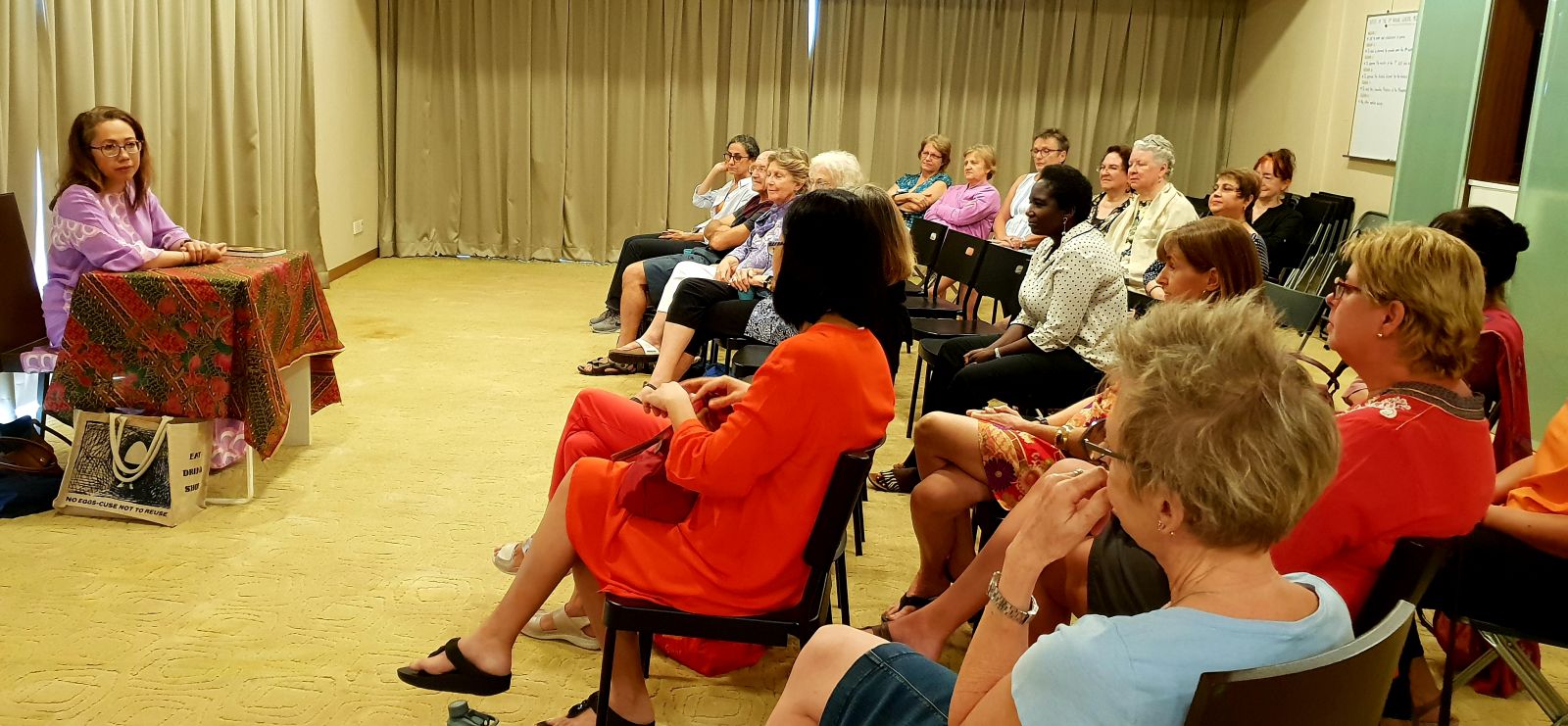 |
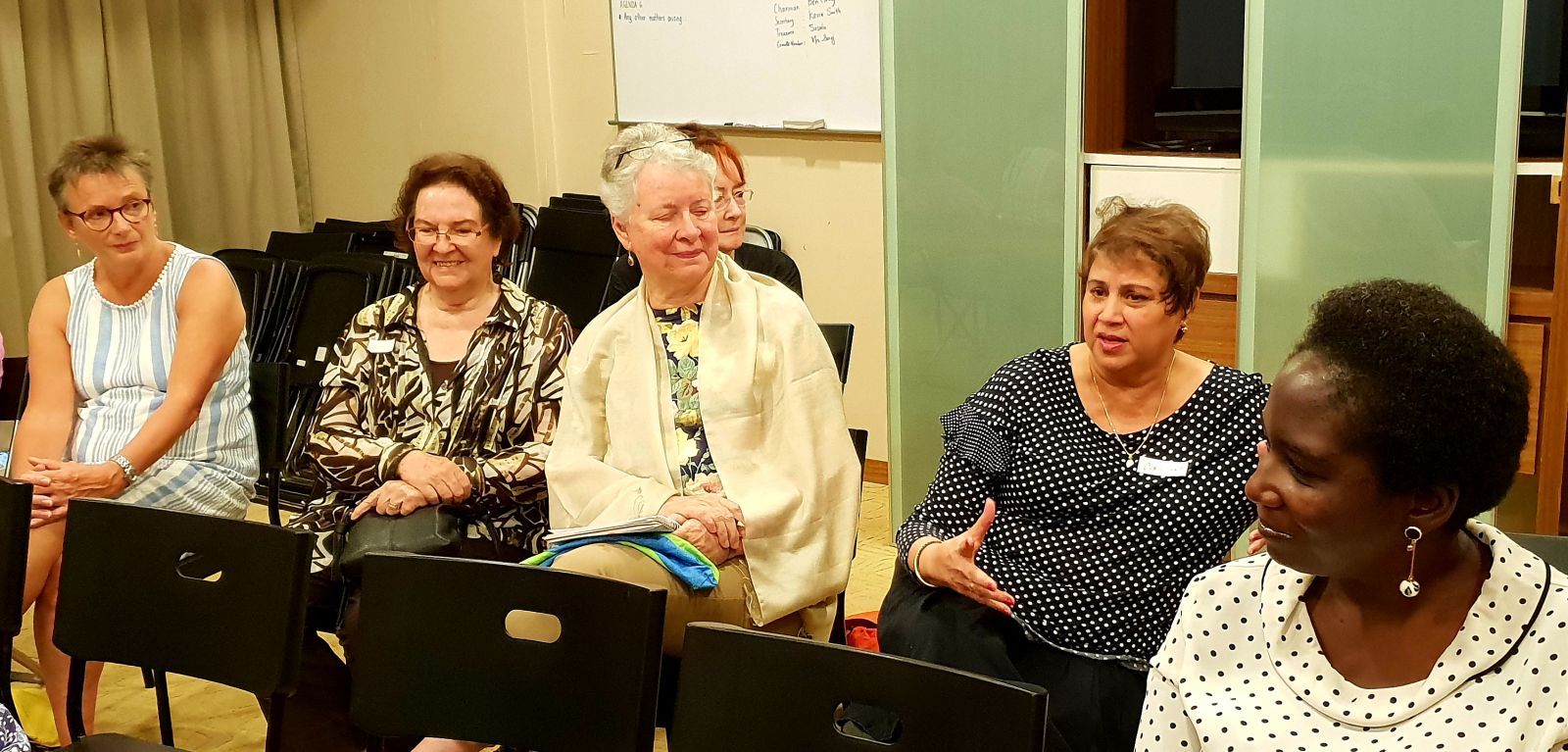 |
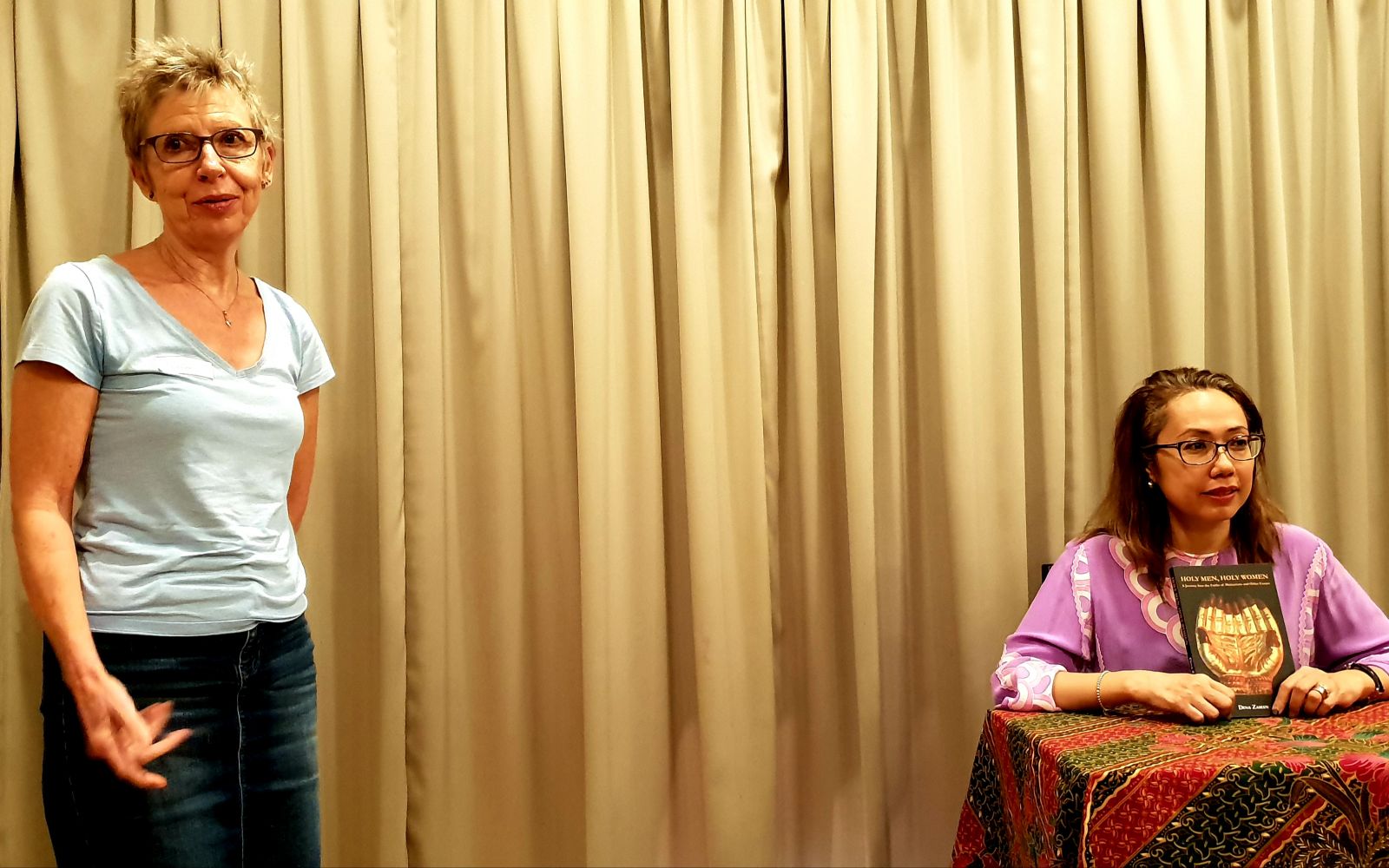 |
|
In her presentation to us she read several passages from her book to give us a sense of her research and a flavour of her findings. She shared a Thaipusam experience at Batu Caves. She struck up a conversation with a man who had hooks in his back and had made offerings to the gods. ‘When the God comes into you,’ he explains, ‘you become that God. You are not yourself for a while. “So why do you pray? Why do you do this?’ ‘I had a vow and I promised to God I’d do this.’ ‘I see. And?’ He looks at me quizzically. This has always been the way he prayed, and if he had a big wish that needed to be granted, this was how he did it. This was how Hindus prayed. |
||
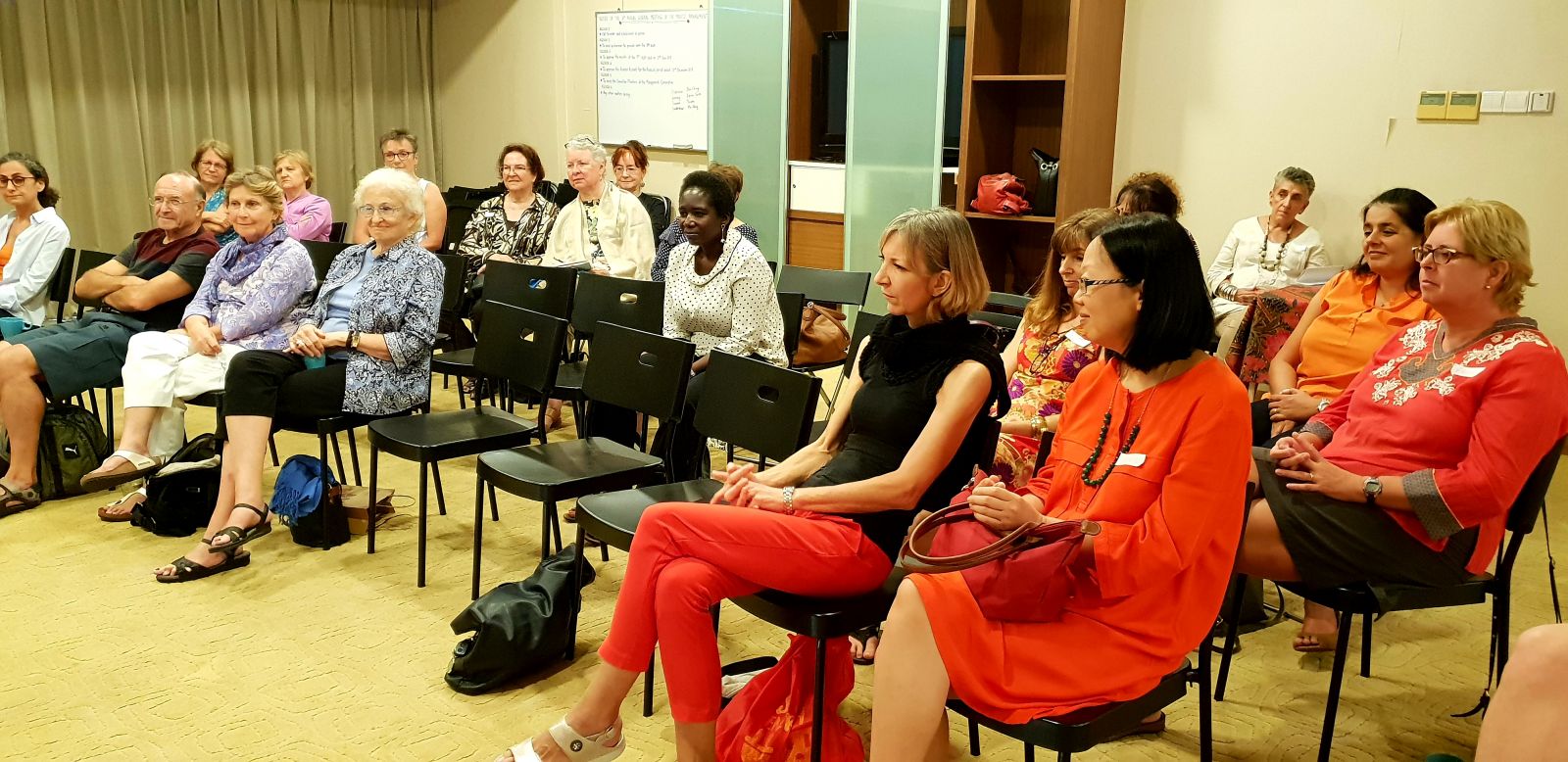 |
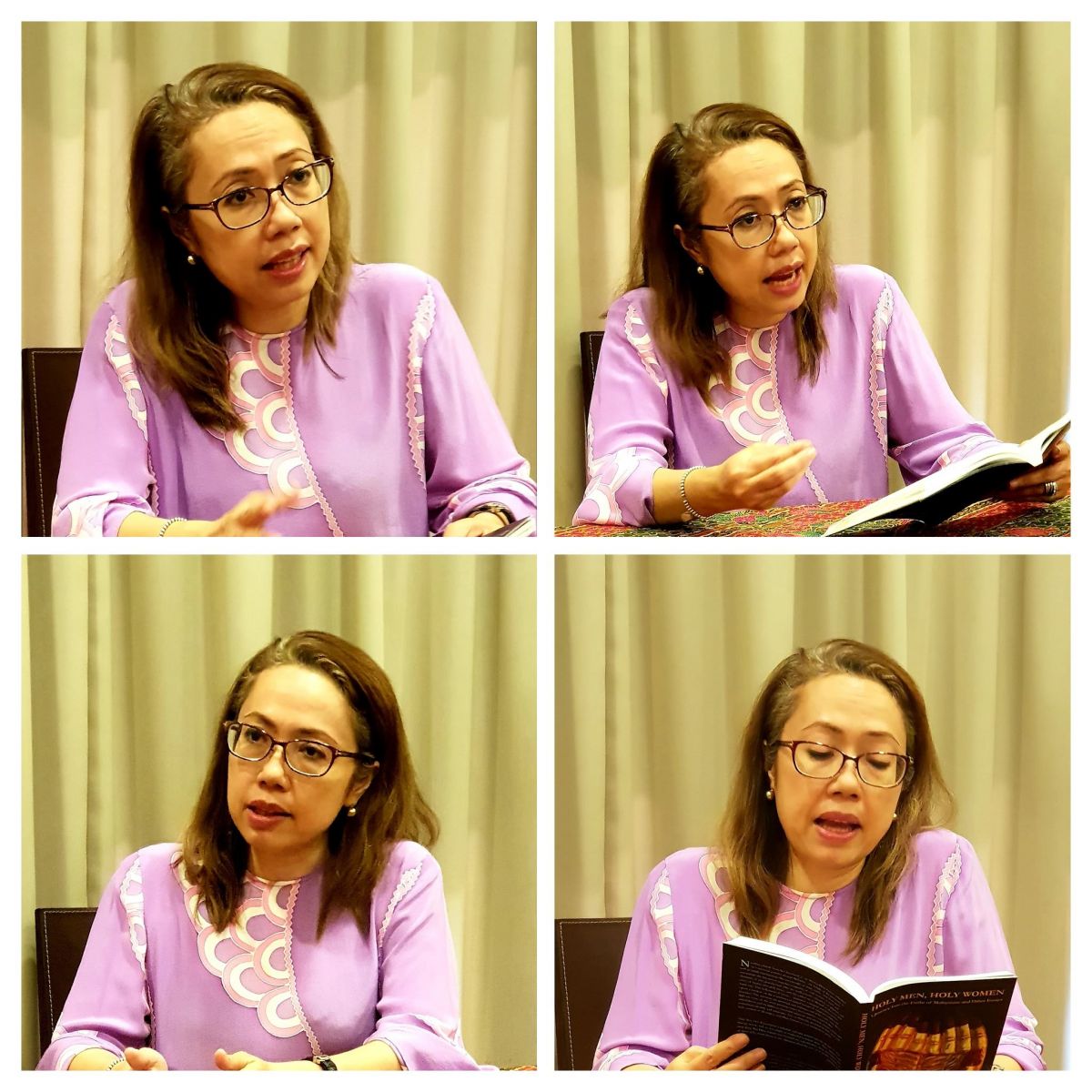 |
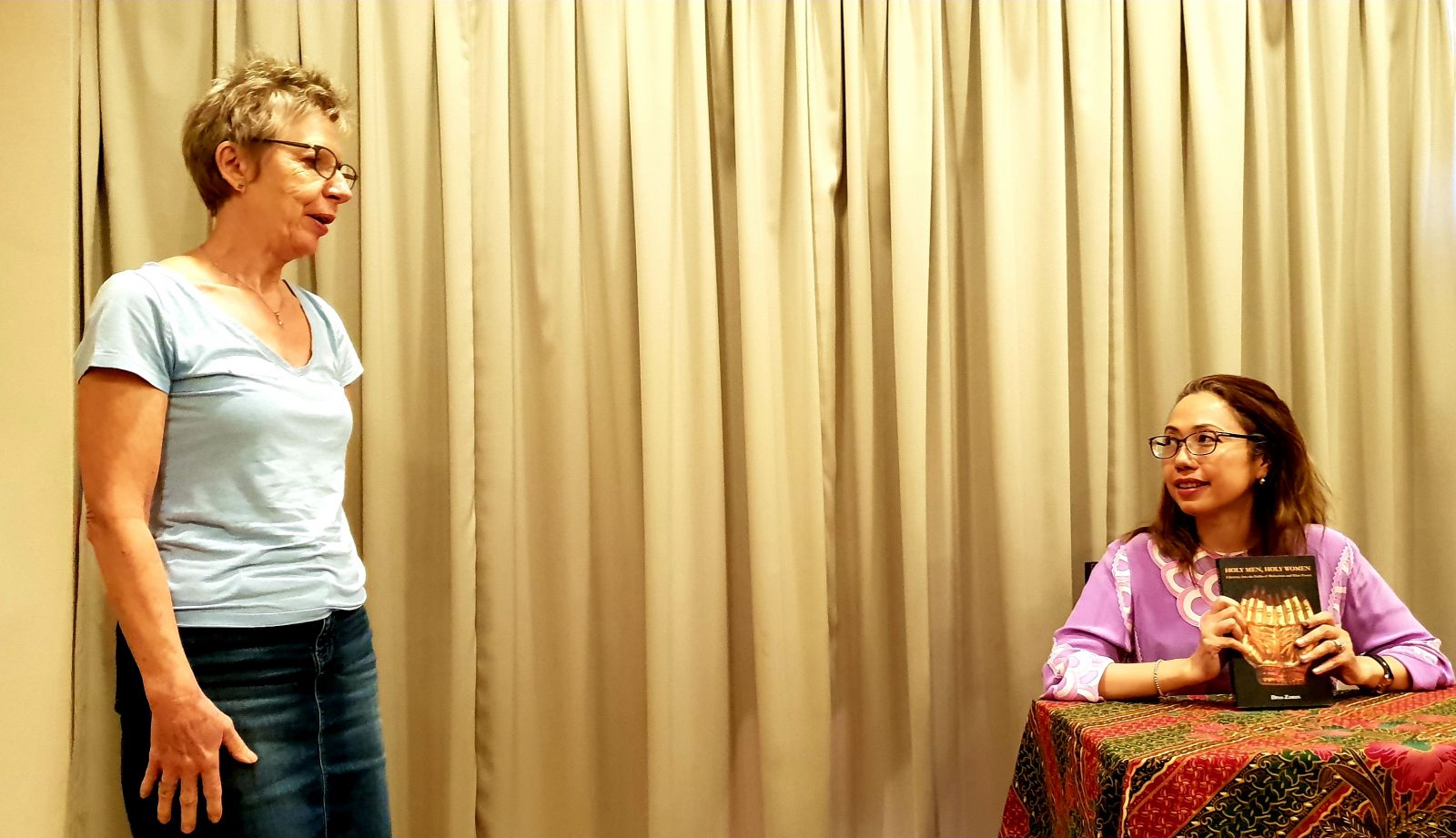 |
| While continuing her reading of passages from her book, she touched on several issues related to Islam, for instance whether or not Muslim women should wear the hijab as there are several schools of thought. These views range from no hijab implying one is not a Muslim to those who wear hijabs always, to those who wear the hijab depending on where they are, not in cities but definitely in militant villages.Hijabs have historical and class elements to be considered and for some it is their only identity to be a Muslim. For some the need to be seen as staunch Muslims overrides everything. | ||
|
She raised a question – who will institute change in Islamic outlooks? She believes it will take time and points out that Sabah and Sarawak are what peninsular Malaysia should be in terms of acceptance of each other. Would a change in education make a difference? She explained that more and more Malays are now attending government schools as Chinese, who are able, opt for private schools. She sees a need for the government to revamp education.
Her final chapter begins with the adage, Money is the root of all evil, which seems most prescient post GE14. An electrician she is chatting with, saddened by today’s materialistic society, asks, Why are Malays ruined? He sums up the Malay dilemma, "If we don’t have any money, we don’t have any morals." Has he provided an answer to his own question and one that Dina has wrestled with too?
Leslie Muri |
||




